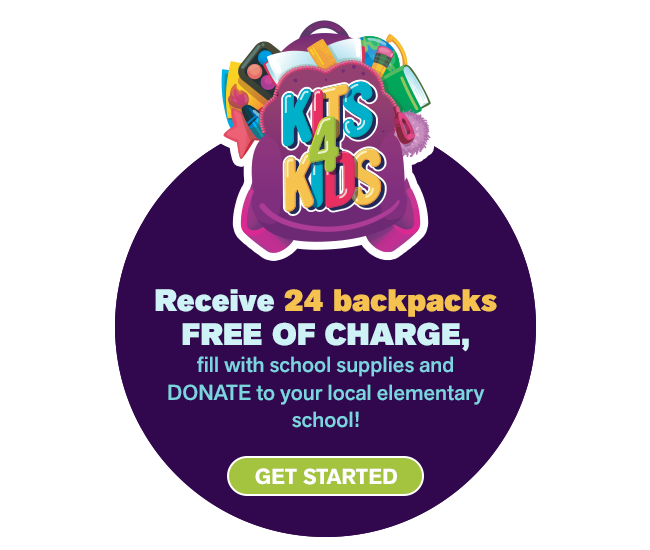
Young people in crisis
At-risk youth comprise a vast population of young people in the United States and Canada. They often live in chronic poverty with negative peer influences, and possibly live in foster care. When the needs of these young people go unmet, their potential negative outcomes include: teenage pregnancy, criminal or antisocial behavior, poor academic performance, shorter life span, mental health disorders, and unhealthy relationships.
For many of us the image of a young person about to graduate high school conjures up feelings of anticipation and excitement. We picture smiling faces of students in cap and gown striding across the stage to receive their diploma and head off into a new world of possibilities: college, job training, the military. But for many, graduation is a day of fear and dread. It may mean there is no longer a safe place to come each day – a place where they were safe, warm, had access to bathrooms and meals. For some teenagers, this rite of passage of graduation, or turning 18, might mean they are no longer allowed to live at home; reasons ranging from disciplinary issues, sexual identity, pregnancy, or simply too many mouths to feed. Teens in foster care suddenly find themselves on their own on their 18th birthday. For younger teens, the prospect of summer vacation simply means hungry bellies without school breakfasts and lunches.
Young adults in low income situations are enticed by colleges and encouraged by well meaning counsellors to better themselves with higher education. These students are promised free tuition only to find out that housing, meal plans and course materials are not covered. They scramble to make it and give up food and housing in order to pay for books. Many high schools and universities now have food pantries to help alleviate hunger among these student populations. In fact, in some states, it has become mandatory for universities to have on-campus food pantries. If you have teens or college aged members in your ecclesia, ask them to find out what services their schools provide and how you may be able to support them.
Youth transitioning to adulthood without the tools and support they need face many challenges including aging out of foster care, unsafe home environments, and poverty. Many homeless shelters will not allow unaccompanied youth to stay. Services for this segment of our population are often very limited and even more difficult for young people in need of help to find and connect with. You can help lessen those challenges and offer support in many different ways.
“Behold, children are a gift of the Lord…” (Psalm 127:3-5)
The statistics
Young people from marginalized communities consistently cite poverty as one of the top three causes and primary drivers of mental health needs. People are often surprised to learn that young people ages 18-24 have some of the highest poverty rates of any demographic group in the country. In fact, in 2021 (the most recent year for which data is currently available), young adults moved to the top of the list: while the national poverty rate was 11.6 percent, the poverty rate for young adults was 14.3 percent. This was in a year when the overall poverty rate declined and the child poverty rate was cut in half by investments in the pandemic response. In the last 30-40 years, anti-poverty efforts have lowered child poverty and elderly poverty, but have done much less to reduce poverty among young adults.
Early parenthood, not completing high school, and always being financially responsible for oneself were strongly associated with childhood poverty. Young adults who spent more than half of their childhood in poverty were more than three times as likely to have had an early child, nearly seven times as likely to have not completed high school, and more than twice as likely to have been fully financially responsible for their own support as their counterparts who were never poor or low-income during childhood. (source)
The Biblical precedents
By engaging with young people, we have the incredible opportunity to change the trajectory of a life. Through GotYourBack, we hope to educate our community on the issues facing young adults in our society and provide Brothers and Sisters with some initial tools to help address physical and spiritual needs in a practical and meaningful way.
There are so many incredible Biblical examples that can be looked to when considering the precedents for caring for young adults. Paul took a young runaway under his wing – Onesimus – and changed his life forever. Just imagine David as a teenager attempting to navigate life in Saul’s court without the mentorship of Jonathan. One of the most amazibg Biblical accounts is found in the life of Christ, in Luke 7:11-15: “As Jesus approached the city, a dead man was being carried out, the only son of his mother, and she was a widow. A sizeable crowd was with her. When the Lord saw her, He felt compassion for her and said to her, “Do not go on weeping.” And He came up and touched the coffin; and the bearers came to a halt. And He said, “Young man, I say to you, ARISE!” And the dead man sat up and began to speak. And Jesus gave him back to his mother.” We often think of the mother in this account, but take a moment to consider what this meant for this young man. He was literally brought from death to life! “…when you were dead in your sins, He made you alive together with Him.” (Col 2:13) Just imagine for a moment how this young man’s life would have changed after being given such a second chance! Likewise, in a small way, your generosity could also mean giving a young adult a second chance… Register today.
How You Can Help:
1. Donate Supplies
When donating the backpacks, consider including additional supplies such as deodorant, socks and gloves. Many of these items can be purchased for a relatively low cost.
2. Preach!
Consider including simple faith-growing material with your donation such as a Bible or local contact information about your ecclesia.
3. Monetary Contributions
If you prefer, you can make a monetary donation to our cause. This allows us to continue offering this initiative to the Christadelphian community.
4. Spread the Word
Help raise awareness about the homeless and this initiative. Share this page on your social media channels, announce Got Your Back on Sunday mornings, or encourage others to visit our website and register.

You can make a positive difference in the lives of youth in need.
By helping at-risk young people through outreach initiatives such as Got Your Back, you contribute to helping build a more positive future. Register for Got Your Back today!


